More slow progress at COP28 but a glimmer of hope remains

We have not landed the ambitious, historic COP we were promised. However, there is still hope that we are at a real tipping point of meaningful action for nature, for people and for the climate. Dr Rhiannon Niven gives an in-depth analysis on the outcomes from COP28.
By Dr Rhiannon Niven
It’s been a rollercoaster of highs and lows throughout the 28th Conference of the Parties to the United Nations Framework Convention on Climate Change (COP28) and mixed reactions to the final texts were no different.
The focus from the headlines has been on the failure to land a rapid, full, funded fossil fuel phase out. BirdLife International supports the Alliance of Small Island States (AOSIS) in their recognition that COP28 has not delivered the transformational system change we desperately need and is full of technical loopholes relating to false solutions and dangerous distractions, such as damaging large-scale expansion of bioenergy.
We cannot keep 1.5°C without fossil fuel phase out and protecting and restoring nature. The role of nature in climate action is also limited as ecosystems pass their climate tipping points. But the signal is clear. The world’s reliance on fossil fuels is coming to an end, supported by the good news of the agreement to triple renewable energy capacity globally and doubling the rate of energy efficiency by 2030. The BirdLife International Partnership is ready to support this delivery through our work, such as AVISTEP and coordination of the Convention on Migratory Species (CMS) Energy Task Force.
Throughout the two weeks, we heard the repeated calls from World Leaders, Ministers, the Climate and Biodiversity Champions, scientists, Indigenous Peoples, youth, local communities and civil society to fully recognize the benefits of halting and reversing biodiversity loss through protecting and restoring nature and ecosystems.
Photos © BirdLife International COP28 Delegation
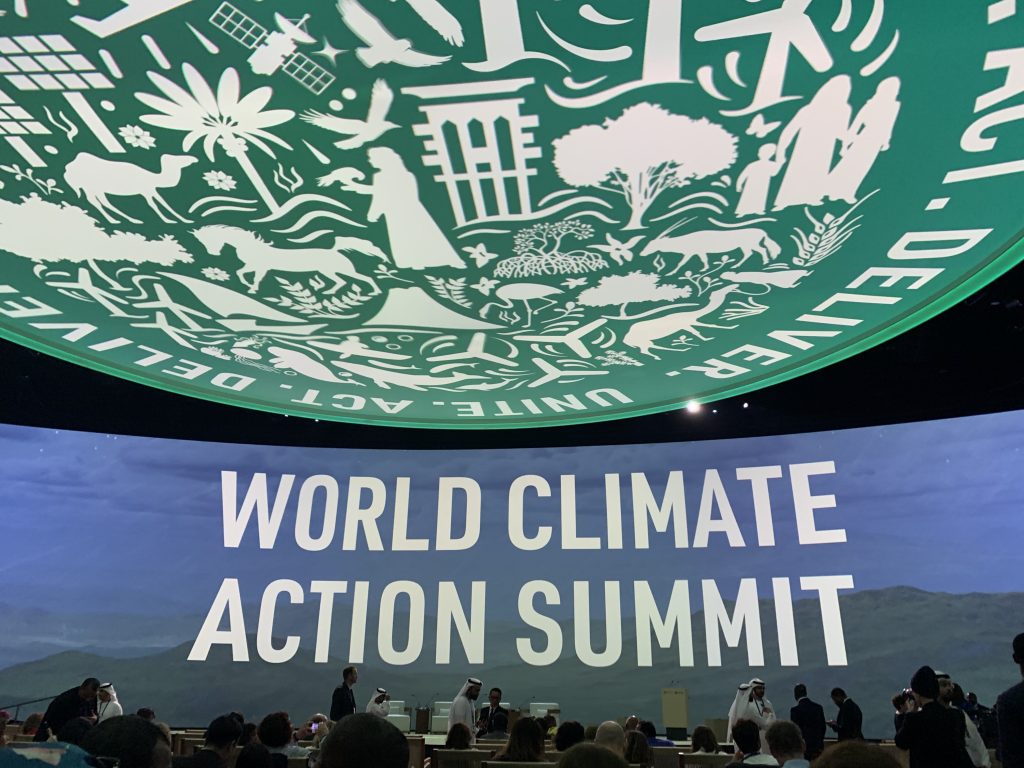
BirdLife and many allies called strongly for decisions at COP28 that strengthened the synergies between the application of the UN climate and biodiversity conventions through national and collective actions. We were glad to see that call was recognized with a reference to the Kunming Montreal Global Biodiversity Framework in the text. However, this disappointingly came without the strong action language we wanted and needed. This lack of action language was again reflected in combination with the welcomed addition of language regarding halting and reversing deforestation and degradation by 2030, and aligns text with past agreements and includes stronger accountability.
We also saw good progress across our other asks we presented to Parties at COP28. Included in the text was good language on nature-based solutions and ecosystem-based adaptation, agriculture, water, mangroves, and oceans, among others. But we were missing the strong safeguards around ocean-based mitigation, opening the door up for geoengineering and no metrics for the critically needed and often forgotten adaptation goals.
Without science-led metrics to deliver on the soft adaptation targets, they are unlikely to have meaningful impact and delivery. This same text was also reflected in the corresponding Global Goal on Adaptation decision text, which was widely agreed to be weak and lacking a robust framework that protects people and ecosystems. We look forward to appropriate finance, means of implementation, metrics and indicators being developed at future COPs. The need for adaptation must not be forgotten.
We were pleased to see the greater recognition of the role and rights of Indigenous Peoples in the text. But as with most elements of the text, they did not go far enough. There is more work to be done.
Overall, the negotiations have continued to move at a disappointing pace. We have not landed the ambitious, historic COP we were promised, with continued risks around greenwashing and huge gaps around finance, in particular. However, it feels like we are at a real tipping point of meaningful action for nature, for people and for the climate. We’ll continue to push our Leaders and see you in Azerbaijan, in 2024.
Today the leaders at COP28 have failed nature and all the people around the world who depend on it. However, the incremental progress made sends a strong signal to the fossil fuel industry: the end of the fossil fuel era is inevitable. We know we can’t protect and restore nature without ending our addiction to fossil fuels. As the world’s largest civil society partnership for nature, BirdLife International will not settle for weak ambition as our leaders have done today. We will continue to fight for the rights of nature and people to deliver the political outcomes and action we need.
Martin Harper, CEO BirdLife International
What did our BirdLife Partners think?
COP28 has given us brief glimpses of what a significant majority of Parties want for the world’s people, and the Earth’s climate and its biodiversity. However, in searching for unanimity, the lowest common denominator, that of the wealthier nations of the world and the petrostates, has once again prevailed. Whilst the process and procedures of the climate convention are unable to provide the leadership the world needs, transformative climate action must be spearheaded by national governments, by progressive movements and businesses, and by the pressure of wider society, as citizens, workers, consumers and voters.
SEO/BirdLife, David Howell, Senior Energy Policy Officer (Spain)
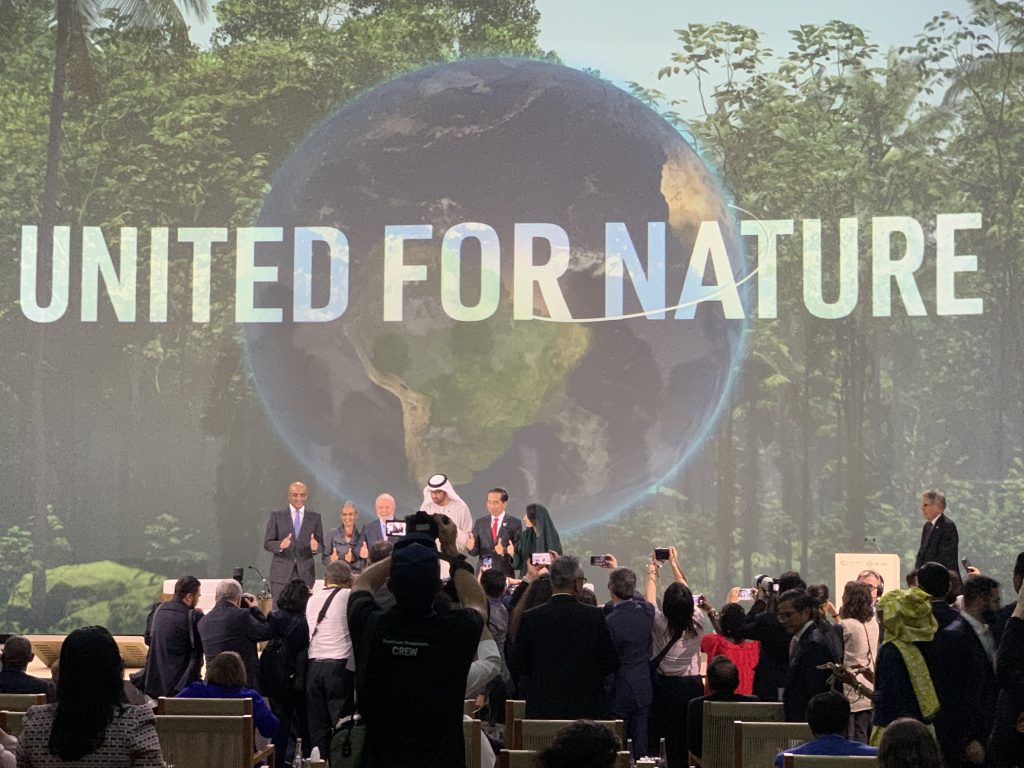
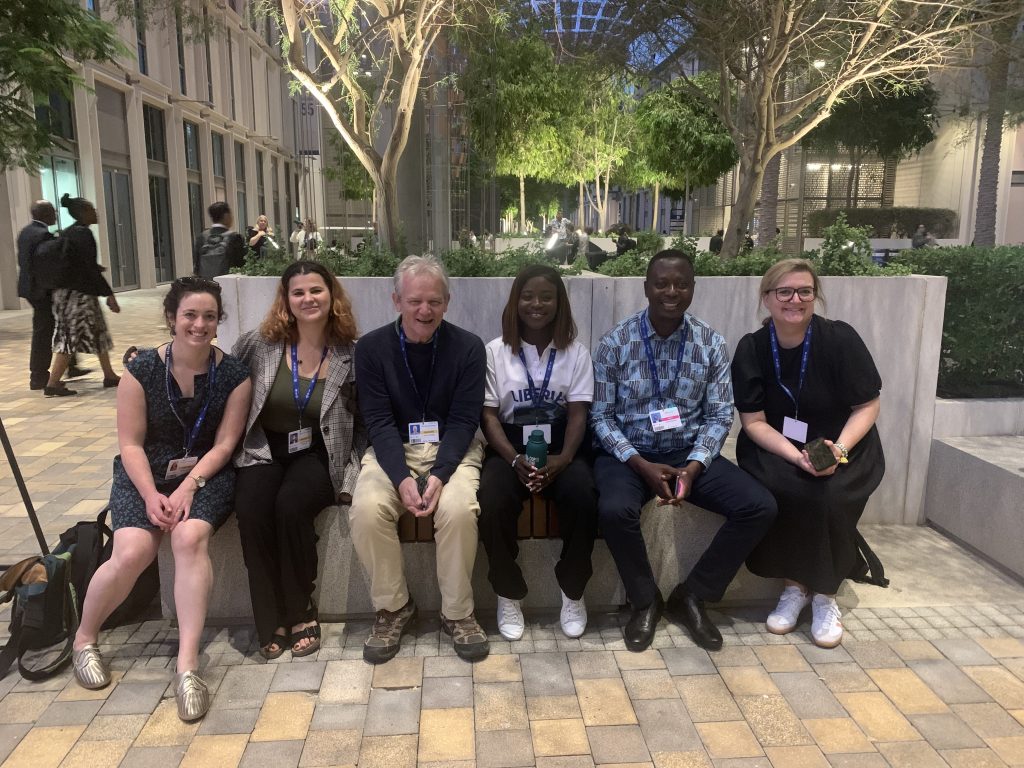
“We certainly welcome a final agreement that takes a historic first step away from fossil fuels and recognizes the vital need to reverse biodiversity loss in solving the climate crisis. We know the world will need to do more, and more quickly, than this statement entails. We will continue to work with our local, national, and global partners to match the urgency this moment requires. This agreement must be seen as a floor, not a ceiling.”
Audubon, Sarah Rose, Vice President for Climate (USA)
“The science is clear: the nature and climate crises need to be tackled together but, despite encouraging high-level rhetoric throughout COP28, the final text outcomes are mixed. We welcome clear reference to the Convention on Biological Diversity’s Global Biodiversity Framework and the importance of protecting and restoring biodiversity, ecosystem integrity and ecosystem-based approaches to adaptation. However, we are highly concerned by language that opens the door to substantially scaling up biofuels and bioenergy with no proposed safeguards which could have huge implications for nature, people and climate.”
RSPB, Melanie Coath, Head of Global Policy (UK)
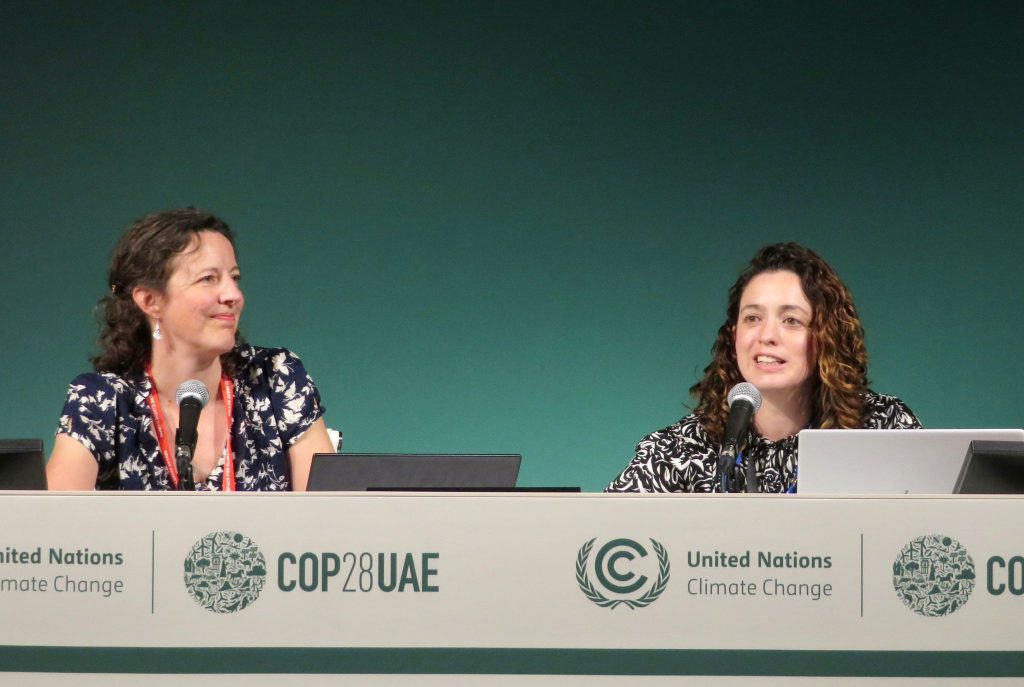
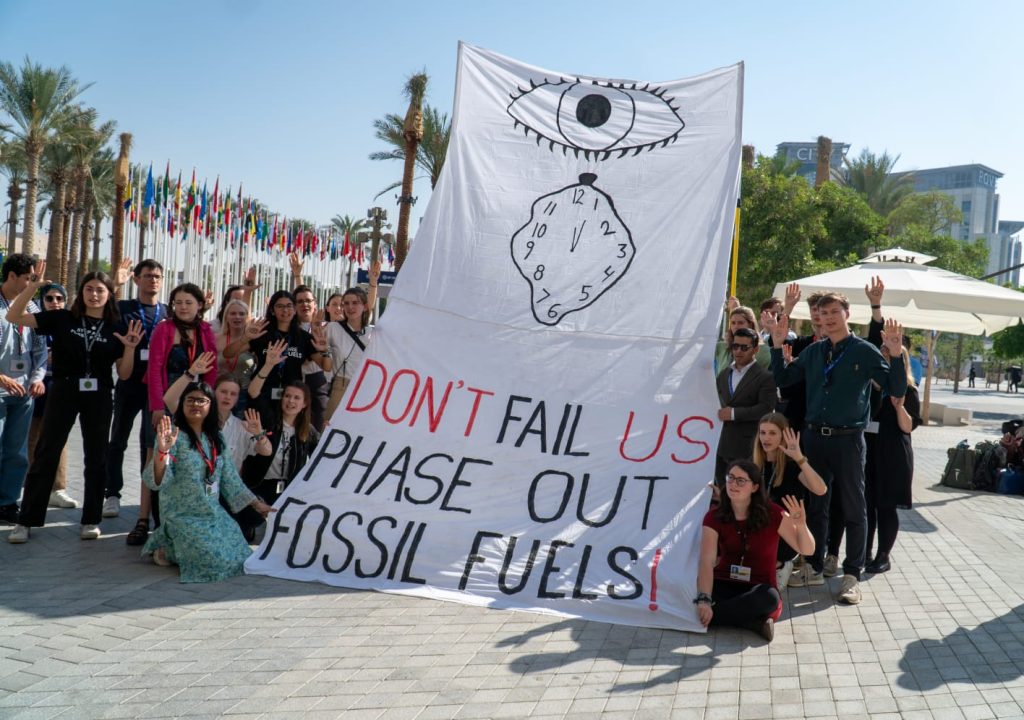
The political decision-makers and relevant circles at the COP in Dubai were delighted with the presidency declaration, which was supposed to put agriculture and food at the center of the climate discussions at the COP for the first time and was confirmed by more than 145 nations. However, the intergovernmental negotiations on the “Joint work on implementation of climate action on agriculture and food security” – probably the most important international negotiations on the catastrophic situation of all life on earth from the perspective of natural, climate and humanitarian crises – also failed on December 5 without ever really having begun (not to mention the impact actual socio-ecological potential of the points on the agenda).
NABU, Simon Kraemer, Advisor Food System and Soil Policy (Germany)
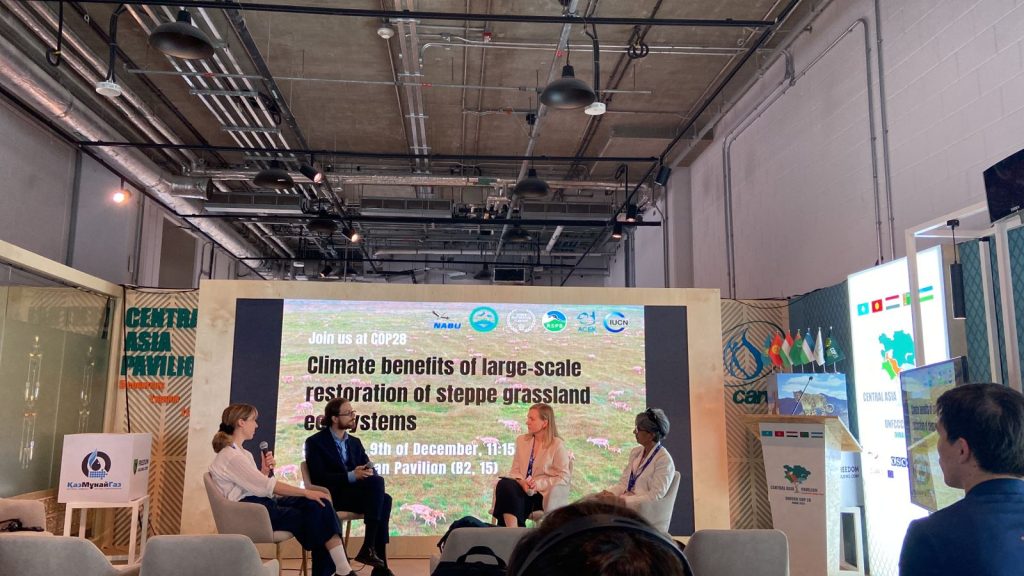
Reflecting on the much anticipated COP28, the outcome was not as ambitious as we expected it to be. We will however continue to push for nature to be at the heart of the solution to the climate crisis. Nature for people, for climate and for prosperity.
NCF, Dr Joseph Onoja, Director General (Nigeria)
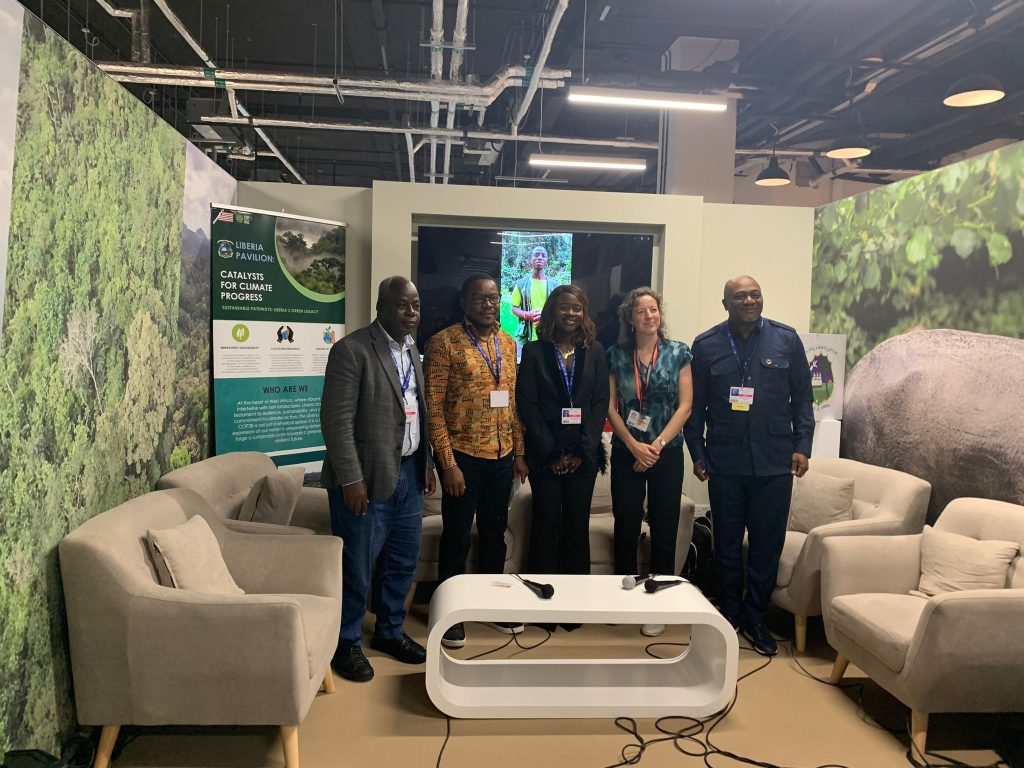
The climate finance pledges made here at COP28 are critical, especially the Loss and Damage fund that will be so relevant for vulnerable countries/communities such as Sierra Leone affected by climate-related disasters and agricultural losses.
The emphasis and commitment for nature-based solutions, to which Sierra Leone’s Minister of Environment and Climate Change has championed, is also very encouraging in our global efforts to address the twin problems of biodiversity loss and climate change.
Unfortunately, we did not see an equal measure of commitment for the reduction in the use of fossil fuels, which will slow down our ambitions to mitigating climate change.
CSSL, Sheku Kamara, Executive Director (Sierra Leone)
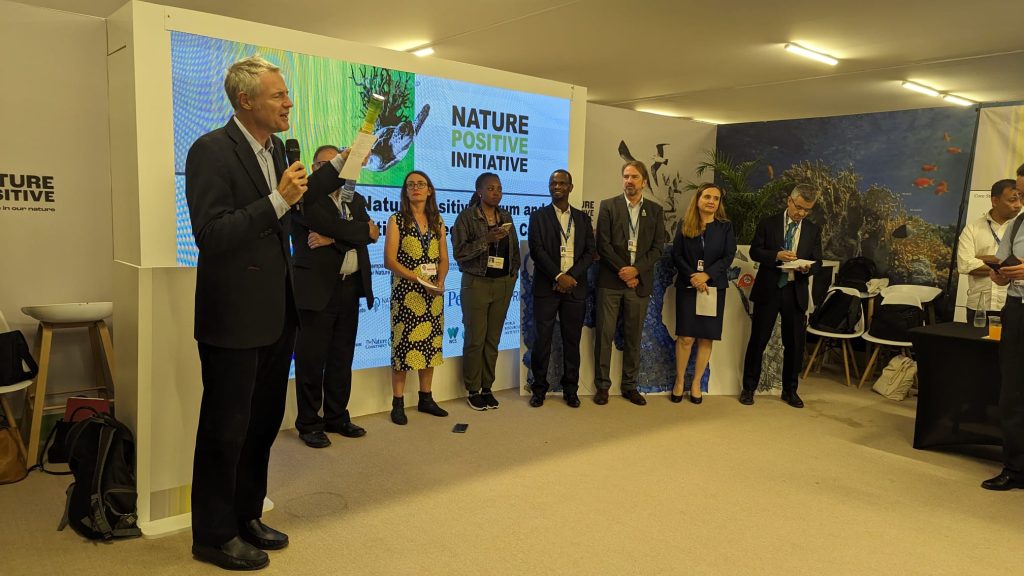
This was my first climate COP, and I came with colleagues to raise the profile of grassland ecosystems and their contribution to climate resilient for the regional and globe. Working to deliver the large-scale restoration of steppe in Kazakhstan, we are observing how a recovering of the saiga antelope to 2 million animals positively affects the landscape with the decreasing of fires. I’m pleasantly surprised that voice for nature and biodiversity agenda within climate’s discussions has been raised significantly. This should motivate more Birdlife partners to actively bring this strong position for the importance of nature for climate stability to their national governments and policies.
ACBK, Vera Voronova, Executive Director (Kazakstan)
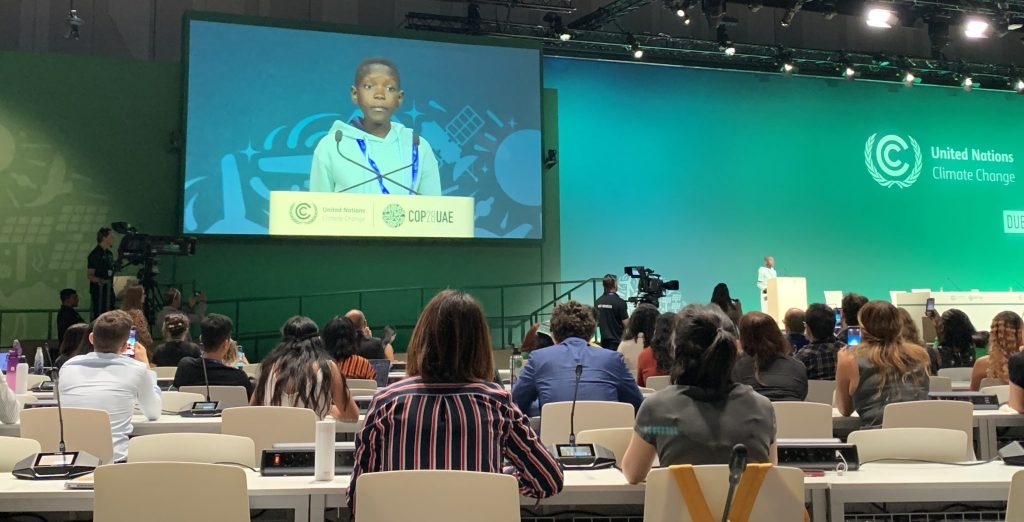
“In the shadow of global challenges that often go unaddressed, I join COP28 to confront a similar neglect, but this time in the realm of environmental action. Our presence at UNFCCC COP is fuelled not by the formal negotiations, but by the spirit of hopeful youth and dedicated adults. Their limited role in the official discourse, yet profound influence, is what motivates us to continue our vital work.”
NCE, Khaled Noby Mohamed, Chief Executive Officer (Egypt)
Despite a promising start with the launch of the Loss and Damage Fund and the Tripling of Renewables Pledge, we are merely at the beginning of a long and challenging journey towards the Phase Out of all Fossil Fuels and fair finance for mitigation and adaptation. Now, we demand real action following these initial minimal steps forward. We need more financial commitments that are inclusive and equitable for all to enable a global just transition.
NAJU, Undine Fleischmann (Germany)